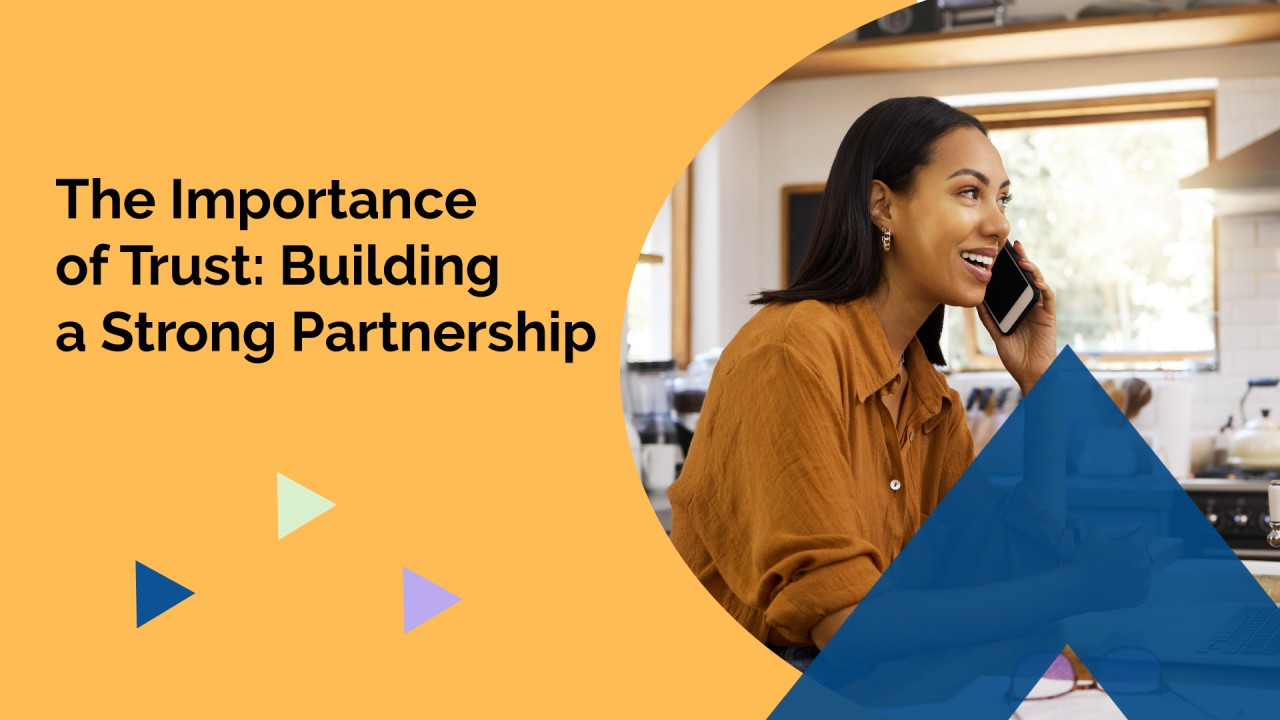The Importance of Trust: Building a Strong Partnership

Is it better to deliver it ourselves or get a third-party supplier to deliver it for us?
This is a common discussion around the boardroom table, and invariably Executives will have different views.
The reality for most organisations is that they simply can’t do everything effectively in-house. It may be too expensive to deliver the service in the current financial climate, it may detract or draw attention away from focussing on other core business areas, or the organisation may simply not have the skills and/or capability to do it themselves to the required standard.
However, once the decision has been made to engage a third-party organisation, one thing is clear, the buyer must find an organisation they can trust. This is an organisation with the capabilities and capacity to deliver the service, and above all else, an organisation that has the right culture and behaviours to work with them in genuine partnership, acting with integrity and transparency.
It is natural for buyers to be concerned about loss of control and knowledge when they choose to outsource parts of their business. After all, what happens if they want to take it back in-house or transfer the service to a different provider in the future – how will they manage the process if they haven’t retained enough knowledge about the service and importantly, how will they avoid a costly or disruptive transition?
The outsourcing industry is littered with examples where contracts have been awarded to organisations that the buyer does not fully trust, or has misplaced their trust on the basis of false promises.
Recent high-profile examples of failed outsourced contracts in the UK include the Crossrail and HS2 projects, which have cost the UK government and taxpayers billions in un-forecasted costs and lost income. There was also the embarrassing no-deal Brexit ferry contract awarded to a supplier with no ferries.
These examples highlight the issue, but many of you reading this will have your own examples of where you are either locked into a contract with an organisation that you no longer trust, or have recently exited from a contract which didn’t turn out the way you had hoped.

So, how do we mitigate this risk?
There needs to be trust and shared values for a partnership to be successful. Trust is hard to build and easy to break, but maintaining it is crucial to successful service delivery.
True partnerships can deliver great outcomes, but they require commitment and resources from both sides. To make it work, the buyer needs to be clear on their vision, their goals and the outcomes they are looking to achieve. These need to be agreed up-front with the supplier, and importantly, continually reviewed throughout the relationship.
Buyers need to think carefully about the functions they want to outsource and how they will monitor and measure performance and success. Meaningful metrics and methods for working together are essential, but these are not substitutes for relationship management.
It is essential that the buyer retains an appropriate number of people with the right skills and behaviours to ensure open and productive lines of communication and enable effective partnership management. This includes regular check-in sessions with open and honest discussions. Moreover, the retained resources need to be working with, not against the supplier and must not duplicate roles and add unnecessary layers of overhead.
The key to successful partnerships
For me, transparency is paramount – at the outset, during the tender process, and throughout the life of the contract.
Abtran’s “more human” approach empowers it to deliver services in true partnership with its clients, with openness and transparency. This is what makes Abtran truly different from its competitors, it’s embedded in our culture and is the core building block for all our contracts.
More human means our services are more flexible, more scalable and more agile, recognising that business and outsourcing services need to continually adapt to market demand, advancements in technology and the needs of our clients and their customers.
Traditionally, organisations have considered either insourcing (delivering the services in-house with their own operational resources and infrastructure) or outsourcing (enlisting the support of a third party to deliver the services on their behalf).
At Abtran, we see a middle ground, where we deliver services with the buyer. The buyer won’t be locked into inflexible contracts, created based on requirements and outcomes which no longer meet their needs. If things change, we will work through them together, and adapt the contract as required to meet the business need. Throughout, we will go on the journey together, sharing the same goals and driving joint outcomes.

We are terming this model Co-Sourcing.
There are many variants of Co-Sourcing but specifically in our model, rather than handing over full control of the service to the supplier, the buyer would retain elements of control and ownership. This would be achieved by the buyer embedding its own resources within our contract management team, thus retaining an element of control and oversight of the service, while leveraging the supplier’s resources and expertise. The supplier is still responsible for delivering the service and accepts the risk transfer associated with it. In simple terms, rather than the buyer’s Service or Contract Manager sitting outside the service looking in and marking our homework, they will be inside the service, working with us to jointly deliver the desired outcomes. They will have full access to our teams, processes and reporting information, and attend our internal account management meetings.
This will ensure complete openness and transparency with the buyer, building and maintaining trust, and promoting collaboration and partnership.
Recognising that the supplier will seek to make a profit from the contract, the model would work alongside existing commercial mechanisms such as open-book reporting.
In an open-book model, the supplier and the buyer would agree the maximum profit margin that the supplier can achieve at the outset. At the end of each charging period, the supplier provides a breakdown of the costs which have been incurred and the profit margin made. If the profit margin is above the level previously agreed, then an agreed profit share mechanism would kick in, which may either see the entire excess profit being returned to the buyer or the excess profit being shared by the partnership to fuel future transformation or continuous improvement.
So, perhaps the question being discussed in the boardroom shouldn’t be “should we get a supplier to deliver it for us?” but rather “should we get a partner to deliver it with us?”
Please reach out to AshleySmith1@Abtran.com for more information or be “more human” and give him a call on 07983 708157.




